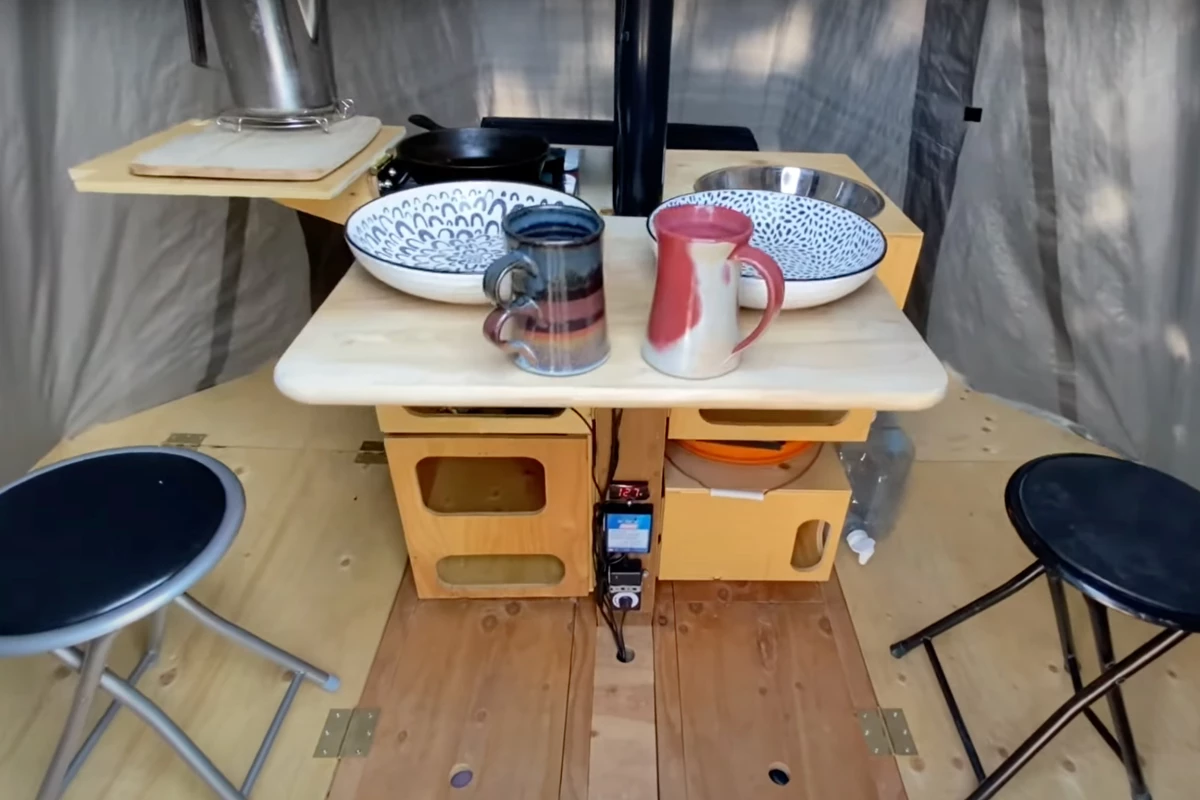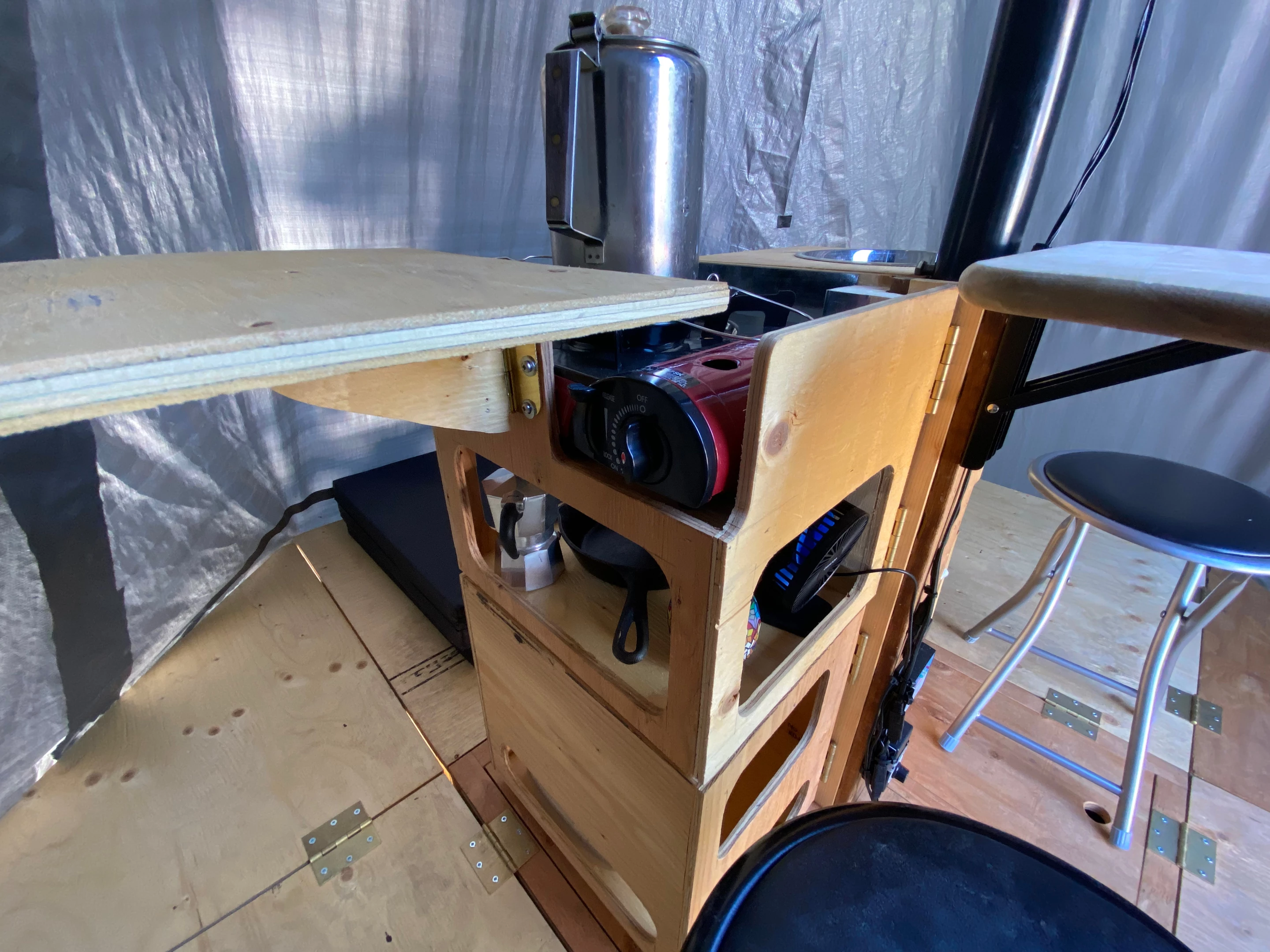While it's vitally important to find homes for the houseless, the sad truth is that many people will remain living on the street in the meantime. The Mini Mansion is designed with that fact in mind, as a portable and better equipped alternative to current options.
Currently in functional prototype form, the setup was created by Canadian inventor Jason Harms. Based out of Nanaimo, British Columbia, he has a background in housing for the mentally ill, home renovations, law enforcement and criminology.
"The spark that got me interested in creating this design was seeing the many homeless in our community pushing around piled-high shopping carts and sleeping on the ground underneath them with tarps," he tells us. "I thought there must be a better way to endure that hardship until they are provided with supportive housing/services, etc."

The resulting plywood-bodied device takes the form of a 40 x 40 x 40-inch (1-m3), 200-lb (91-kg) cube when not in use. It can then be rolled along the sidewalk (within reasonable distances) on four heavy-duty rubber tires.
Once it's needed as a shelter, the Mini Mansion folds out and telescopes up to provide 50 sq ft (4.6 sq m) of floor space and 78 inches (2 m) of ceiling height, which are contained within waterproof canopy walls.
A central interior unit in the present version incorporates features such as a fold-out table, cooktop, sink and commode, while an overhead light provides illumination and ceiling fans help keep inhabitants cool. Power is provided by a 40-watt solar panel which charges a 12-volt battery.

Harms estimates that the basic unit could be built by most people for about CAD$1,500 (US$1,112) utilizing found or recycled materials. A lighter, more refined, professionally built version might be more around CAD$3,000 (US$2,224). He is exploring the possibility of starting a non-profit group to build and distribute Mini Mansions, and also hopes to hold workshops in which other people are instructed on how to build them.
All of that being said, Harms does admit that theft and vandalism certainly are concerns – although not necessarily in all usage scenarios.
"There are many homeless communities that are a bit more organized and supportive of each other where a Mini Mansion type shelter might fit right in," he says. "Ideally, several people would receive a shelter simultaneously within a community in order to maintain fairness and raise hope in others that more will arrive in time."
"As with many things when it comes to homelessness and the housing crisis, it can be quite difficult to implement new items or services into the fray, and the Mini Mansion is likely no exception. The distribution of it would no doubt be fraught with challenges, but as a new and somewhat unique entrant into the space, it just might turn out to be a helpful option."
Interested parties can email Harms at jasonjonkerharmsconcepts@outlook.com.









